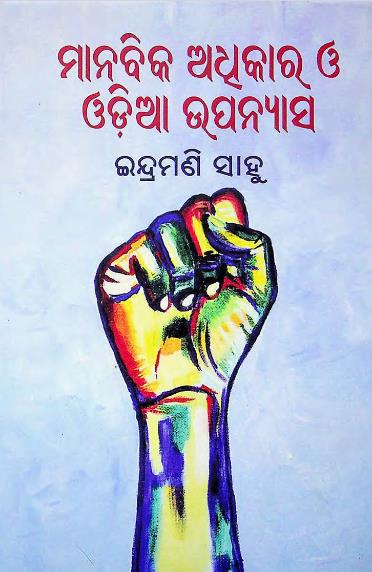Manabika Adhikar o Odia Upanyasa An Insightful Exploration by Indramani Sahu
In the rich tapestry of literature, few languages manage to intertwine the concept of human rights with storytelling as gracefully as Odia. The essay Manabika Adhikar o Odia Upanyasa by Indramani Sahu, published in 2019, serves as a critical exploration of this union, illuminating the ways in which Odia literature reflects and promotes human rights.
Sahu begins by defining “manabika adhikar” or human rights, emphasizing its universality and the intrinsic entitlement of every individual to live with dignity, freedom, and justice. In a world grappling with socio-political issues, such as inequality, discrimination, and oppression, the recognition and protection of these rights are paramount. Sahu argues that literature, specifically Odia novels, plays a pivotal role in creating awareness and fostering a dialogue around these rights.
Through a careful analysis of various Odia novels, Sahu highlights how writers have historically mirrored the socio-political landscape of their times. Novels such as ‘Maa’ by the eminent writer Surendra Mohanty explore the struggles of marginalized communities, showcasing the fight for survival and dignity. These literary works transcend mere storytelling; they become social commentaries that provoke thought and inspire action against injustices.
Sahu delves into the character development within these narratives. He illustrates how protagonists often embody the struggle for human rights, grappling with societal expectations and oppression. For example, in the works of renowned authors like Pratibha Ray and Manoj Das, characters are frequently depicted as agents of change, challenging societal norms and advocating for the rights of the oppressed. These literary figures resonate with readers, instilling a sense of empathy and a call to action.
Moreover, Sahu draws attention to the role of language in shaping perceptions of human rights. The beauty and nuance of Odia language enable authors to express complex emotional and social realities, making the case for human rights more impactful. He notes how lyrical prose can evoke a powerful response in readers, prompting them to reflect on their own lives and the rights of others around them.
Sahu’s essay also sheds light on the contemporary relevance of Odia literature in the struggle for human rights. He points out that modern writers are increasingly using their platforms to address pressing issues such as gender equality, caste discrimination, and environmental justice. By weaving these themes into their narratives, they not only entertain but also educate their audience about the importance of safeguarding human rights.
The essay concludes by asserting that the intersection of human rights and literature is not just a theoretical construct but a vital reality that can lead to social change. Sahu urges readers and writers alike to engage with literature as a means of understanding and advocating for human rights. He posits that through the lens of Odia upanyasa (novels), one can understand the deeper layers of human experience, ultimately driving the movement towards a more just and equitable society.
In essence, Manabika Adhikar o Odia Upanyasa is a profound reflection on the power of literature in advocating for human rights. Sahu’s insights encourage us to recognize the transformative potential of storytelling and its ability to illuminate the path toward a better world for all.
Books Info
| Books name | Manabika Adhikar o Odia Upanyasa/ମାନବିକ ଅଧିକାର ଓ ଓଡ଼ିଆ ଉପନ୍ୟାସ |
| Author | Indramani Sahu |
| No Of pages | 99 |
| Publisher | Athena Books |
| Publication | 2019 |
| Printed At | Athena Books |
| Distributor | NA |

